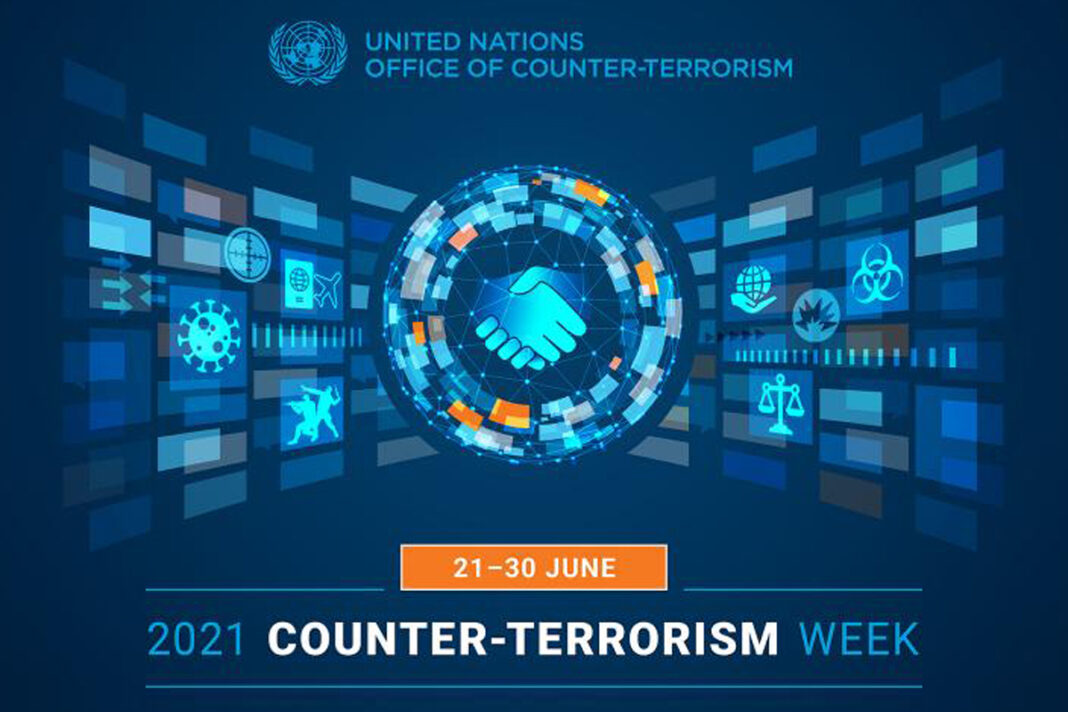Terrorism is one of the main threats to international peace and security. This has remained true during the COVID-19 pandemic, when parts of the world had to shut down, while it merely forced terrorists to change the way they operated. This week, experts from around the globe gathered online and in person at the 2021 Counter-Terrorism Week to discuss possible ways of preventing terrorism.
Speaking at the high-level segment event focussing on countering the financing of terrorism in the post-COVID landscape, UNODC Executive Director Ghada Waly highlighted that during the pandemic, terrorists worked to circumvent travel restrictions by using virtual currencies and digital services to raise and move funds in the digital space.
“As we work together to adapt to post-COVID realities,” Ms. Waly said, “UNODC stands ready to support international efforts to protect payment and remittance flows and keep funds out of terrorist hands.”
At another event, the UNODC Executive Director spoke about UNODC’s joint work with the Inter-Parliamentary Union and the UN Office of Counter-Terrorism on model legislative provisions on victims of terrorism to be launched later this year. These provisions will cover the support for victims of terrorist acts as highlighted in the UN Global Counter-Terrorism Strategy, which also encourages the creation of national systems of assistance.
“The provisions will be a resource for Member States to bring national legislation in line with international norms, through a victim-centred approach focusing on compensation, recognition and remembrance,” Ms. Waly said.
During the week, experts discussed all aspects of terrorism and related challenges such as financing, criminal justice responses, national action plans, prevention of radicalization to violence in prisons, and the rehabilitation and reintegration of victims, witnesses and offenders, among others.
Through its integrated mandates on tackling organized crime, drugs, corruption, and terrorism UNODC is in the unique position to deliver comprehensive technical assistance on terrorism prevention covering all aspects of criminal justice response, including supporting the rehabilitation and reintegration of offenders.
Such integrated approaches are at the core of UNODC’s new corporate strategy for the period 2021-2025, and our UNODC Strategic Vision for Africa 2030, which guides the organization’s support to countries in the continent.
Since 2003, UNODC has trained over 31,000 criminal justice and law enforcement practitioners on a range of legal and criminal justice aspects related to terrorism prevention. With UNODC’s assistance, 189 pieces of national legislation have been drafted, revised, and some adopted by Member States, which incorporated the requirements of the international legal instruments against terrorism.









